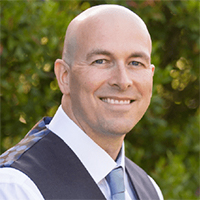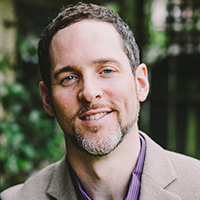
Sean Gjos
Founder & CEO, Boreal Wellness Centres

Mike Mathers
Registered Clinical, Boreal Wellness Centres
Removing access barriers to mental health support is a valuable way for employers to support employee productivity. Boreal Wellness Centres is spearheading a novel approach to meet this need.
Savvy employers are becoming increasingly engaged with their employees’ mental health. Besides improving quality of life and workplace culture, healthy employees translate to a healthy bottom line. “The costs of mental health-related disabilities are staggering, especially when you take into account what’s now being called ‘presenteeism,’ which is when people are at work but not functioning optimally because of mental health issues,” says Sean Gjos, Founder of Vancouver-based Boreal Wellness Centres.“Mental health is at least as important as physical health. By creating a psychologically healthy workplace and ensuring employees can access appropriate prevention and treatment options, employers are making an investment that will result in a happier and more productive workforce.”
Offering mental health support can be a challenge for employers
Commonly available mental health services tend to fall at one or another extreme — namely, either one-on-one therapy sessions or more intensive care in an inpatient setting. Boreal Wellness Centres was founded to fill this gap using outpatient group therapy. “Group therapy can be helpful for people struggling with their mental health. The opportunity to come together with others and tackle issues in a group setting can lessen stigma and aid in building resiliency skills,” says Gjos.
Group therapy, especially in virtually-delivered sessions, is an accessible, affordable alternative to traditional options. Virtual care removes geographic barriers and lowers the access threshold for those who are unable or unwilling to commit to in-person treatment — ideal for companies whose employees are spread over various regions, especially where specialized mental health professionals may be in short supply. Offering a virtual option makes it more likely that employees get the support they need before mental health issues necessitate a leave of absence.
“When we started offering virtual group therapy, I didn’t expect it to be as seamless and powerful as it’s turned out to be,” says Mike Mathers, Clinician at Boreal Wellness Centres. “It can reduce anxiety for people just getting started with therapy, and all the amazing benefits of group therapy translate surprisingly well to a virtual medium. It’s really impactful when people come together, even if it’s via video conference, and realize they’re not the only ones suffering from mental health issues. There are many healing opportunities in the interpersonal contact that takes place in group settings, including an opportunity to practice communication skills in real time.”
The evidence-based group program focuses on building resilience skills in an environment that lowers stigma, fosters a sense of community, and reduces patients’ sense of social isolation.
Mindfulness-based treatment as an alternative to 12-step programs
Boreal Wellness Centres’ flagship programs for anxiety, depression, and trauma are now complemented by an addiction treatment offering. Resilient Living™ Recovery is a mindfulness-based approach to addressing the underlying problems that lead to problematic substance use. The evidence-based group program focuses on building resilience skills in an environment that lowers stigma, fosters a sense of community, and reduces patients’ sense of social isolation. It’s especially well-suited to individuals who have been left out of the mental health care continuum, since it can be delivered virtually with demonstrable efficacy, and at a fraction of the cost of other treatment options.
“There is value to the 12-step approach, but it doesn’t work for everyone. The majority of people with substance use problems fall on the mild to moderate end of the spectrum, and the 12-step model hasn’t really catered to them,” says Mathers. “Our approach is different in that it doesn’t require abstinence for engagement and treatment and doesn’t rely on the idea that there’s something fundamentally wrong with a person that leads to substance misuse — a message I find problematic. Resilient Living™ Recovery can reach people at an earlier stage of their substance use; which research shows leads to better outcomes. We want to put out small fires before they become raging infernos.”
To that end, Boreal Wellness Centres works with patients proactively to support their mental health before issues spiral out of control and detract from their quality of life — as well as their performance at work.




